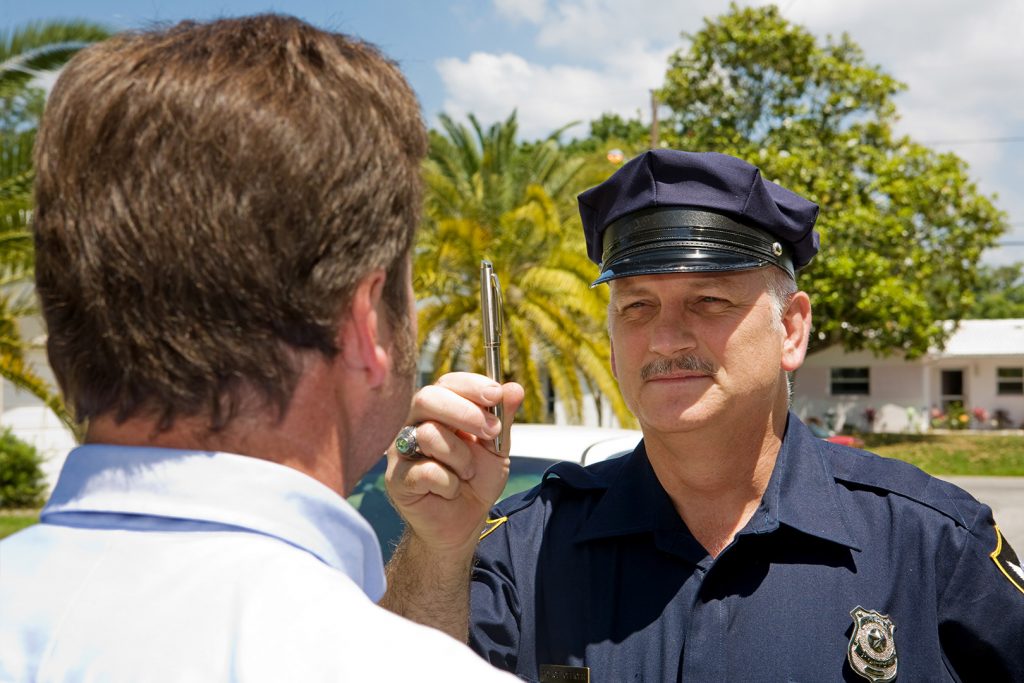
No law firm will ever give advice without a face-to-face meeting where the details of your case can be heard. When it comes to field sobriety tests, everyone wants to know the same thing: Can I refuse the sobriety tests, and if I do, will it hurt me or help me? That’s a loaded question that has a number of different answers.
You may also wonder:
What about being pulled over for some other offense like speeding, and you just had one or two drinks prior to getting in the car. Should you refuse the field sobriety tests just in case those drinks affected you differently than that quantity of alcohol has affected you in the past? What if you take the test and fail? What if you take the test while stone cold sober, but are so nervous that you fail the tests miserably and get arrested?
While we can’t give legal advice in this article, we can pass on some information that DUI attorneys have shared about field sobriety tests.
Field Sobriety Tests: To Take or Not To Take
There are three field sobriety standardized tests sanctioned by the National Highway Traffic Safety Administration (NHTSA). As you may remember from your days in high school, a standardized test has the exact same questions or tasks, administration procedures, and scoring procedures for everyone who takes it. While administering these approved field sobriety tests may follow objective procedure, the way the results are read is subjective (based on the police officer’s interpretation of how he thinks you did on the sobriety tests).
Horizontal gase nystagmus (HGN) test: Alcohol.org defines nystagmus as “an involuntary jerking of the eyeball that occurs when the eyes track an object that moves side to side. Under normal conditions, nystagmus occurs when the eyes are rotated peripherally.” When a person is intoxicated, the nystagmus is exaggerated and will occur at nearly any angle.
To administer the HGN test, a police officer moves his hands side to side and asks the individual to follow their fingers, a small flashlight, or pen. Impairment will become obvious in one or more ways:
- The eye cannot follow the moving object in a smooth fashion
- The jerking is sustained
- The jerking begins prior to the eye being 45 degrees of center
Walk and turn test: The driver is told to take nine steps heel to toe, then turn on one foot, and come back the same way. If the person taking this test is unable to maintain balance; starts before instructions are completed; stops to regain balance; doesn’t walk heel to toe; takes too many or too few steps; uses arms to balance; steps off the straight line; or makes an improper turn, the police officer may say the individual failed this particular field sobriety test. Most of us can’t successfully complete this test when we’re feeling our absolute sober best.
One leg stand test: The person is told to stand with one foot approximately six inches off the ground and count aloud starting with 1,000 until the officer tells the person to put their foot down. If the individual does any of the following, he will have failed this field sobriety test:
- Swaying while trying to balance
- Using arms to balance
- Hopping to maintain balance
- Putting the non-weight-bearing foot down
Like the walk and turn test, most people cannot successfully complete this test with zero alcohol in their system. Imagine how nervous you’d be if you were pulled over and asked to take this test.
Keep this fact in mind as you ponder the pros and cons of field sobriety tests: The highest reliability of the horizontal gaze nystagmus test is estimated to be only 77%, by the NHTSA; that means in 23% of the cases the result is wrong.
Know Your Rights
You may have heard this response when it comes to whether or not drivers should take field sobriety tests: “You can’t fail a test you didn’t take.” While many DUI attorneys believe it’s best to refuse field sobriety tests, you should be aware of what consequences may be in store should you tell law enforcement you will not take part in these tests after you’re pulled over.
Field sobriety tests are a tool used by law enforcement to find probable cause to arrest someone for driving under the influence. If a cop feels a person is legally intoxicated and the person passes the standard field sobriety tests, the officer has the option to arrest them anyway if they suspect the person is unfit to drive. The police officer will most likely request the driver take a roadside Breathalyzer test. These tests are used by the police officer as evidence that there was probable cause to stop the person.
Hire a DUI Lawyer
While there’s no legal requirement for anyone to take field sobriety tests, refusal to cooperate with a law enforcement officer will likely make that officer suspicious, and refusal to take the tests may prompt the cop to arrest you. If you refuse to take a field sobriety test and are arrested, you should call an experienced DUI attorney in your area at your very first opportunity. You will not be able to fight the legal war of a DUI without a knowledgeable DUI lawyer on your side. These offenses are costly and can result in serious penalties including jail time, loss of driving privilege, and hefty fines, just to name a few. If you’re arrested for DUI, simply ask for a lawyer or contact one yourself and don’t say a word until you’re in contact with an attorney.
